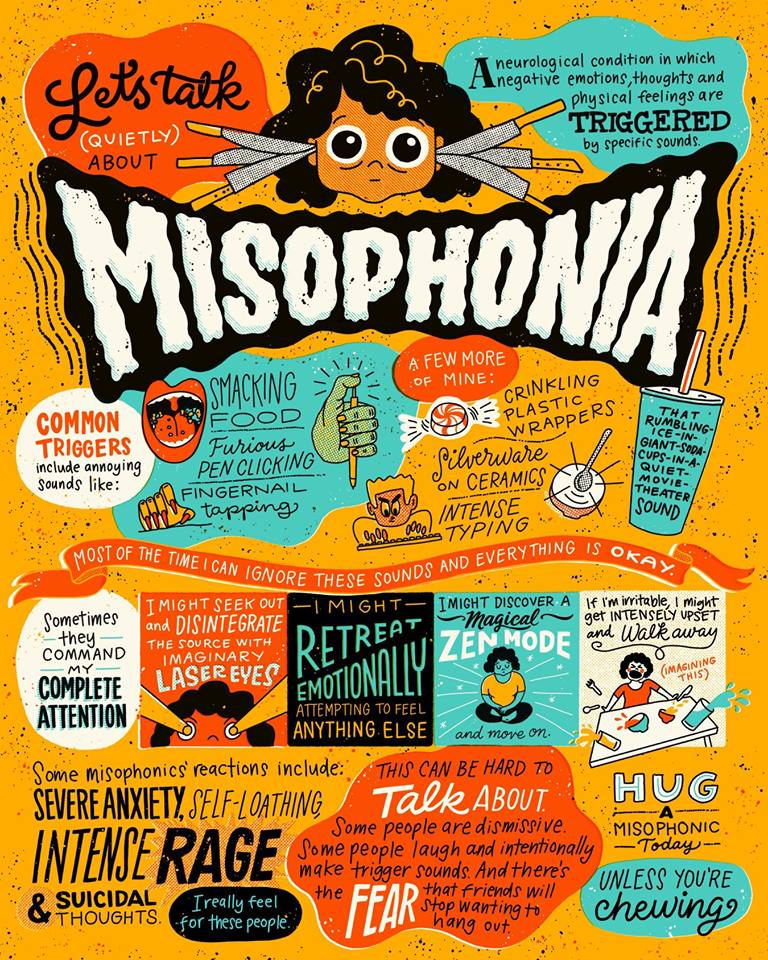Sharing this disorder with others can have uncertain outcomes. Sometimes, people make fun of those with a high sensitivity to sound. Some go so far as to make loud or exaggerated sounds to tease or taunt misophonic people. In addition, some family members, friends and colleagues try to solve the problem, telling them to “try to ignore the sound” or they are told that they are “difficult people”, that is, not adaptable to different circumstances and the only remedy for those around. is to advise them to “not get caught up in the moment”. Tips like these, even if with good intentions, are usually not helpful for people with misophonia; it is not in fact a matter of making a conscious decision to ignore the sounds. If people with misophonia could ignore their instincts, they wouldn’t have misophonia.
From www.misophonia.com/symptoms-triggers/



